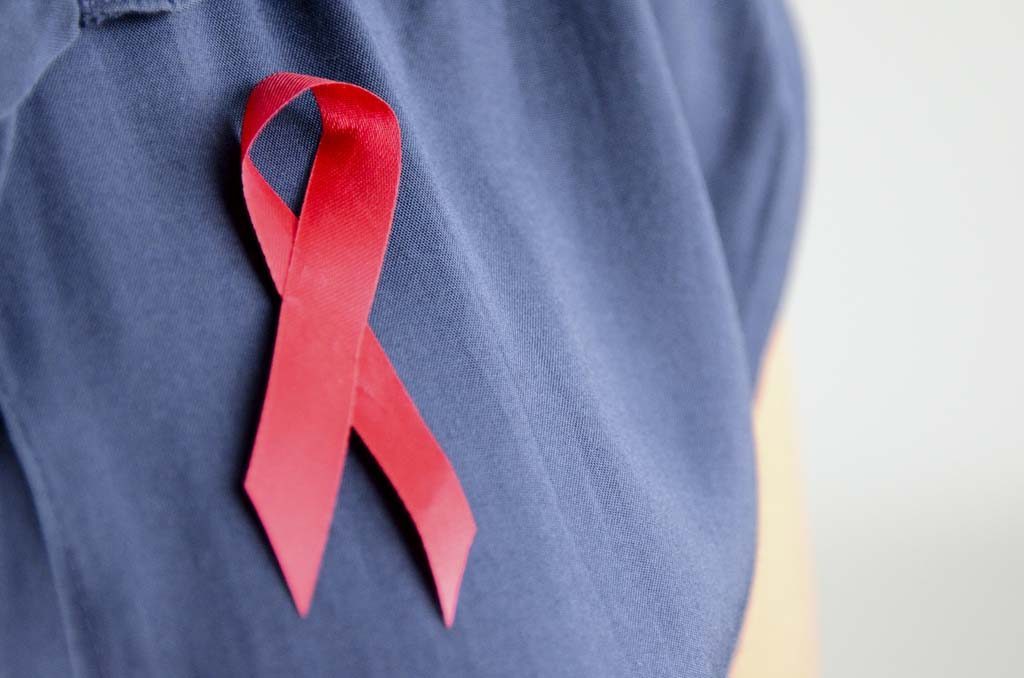
Qatar has taken major steps in the fight against HIV by publicly acknowledging and treating cases in recent years, but still faces several challenges with regards to the virus, the Joint United Nations Programme on HIV/AIDS has said.
That includes a lack of support groups and a fear of getting tested, a spokesperson said.
If HIV, which stands for human immunodeficiency virus, is left untreated, it can lead to the disease AIDS (acquired immunodeficiency syndrome).
To mark World Aids Day this week, Hamad Medical Corp. (HMC) expressed support for people who suffer from the HIV virus and discussed its prevalence in Qatar.
In a statement, HMC’s head of Infectious Diseases and AIDS program manager Dr. Abdullatif Al Khal said:
“As a country committed to the well-being and good health of its population, Qatar has put in place a National Aids Program focusing on raising awareness of the virus, as well as providing comprehensive care to affected individuals residing in the country.”
Lack of associations
Despite these efforts, UNAIDS expressed concern that much of the HIV fight falls on the shoulders of one government-funded organization.

Responding to questions from Doha News about HIV in Qatar, Yamina Chakkar, director of the group’s MENA regional support team, said that the limited participation of civil society organizations in dealing with the issue is one of the main obstacles here.
She added that there is no association or NGO for Qatar residents living with HIV, and all efforts and funding are handled by the Supreme Council of Health (SCH).
Though Qatar has no national plan for dealing with HIV, Chakkar cited the Arab AIDS Strategy, which the country is a part of:
“The presence and active participation of an association for PLHIV and civil society (groups) is essential to facilitate access to people at the highest risk, like the key populations.”
The strategy provides a framework for all Arab countries to align their health objectives from 2014 to 2020.
Statistics
Chakkar said that the available information about the HIV virus in Qatar is mostly limited to data from testing services which show that the country has one the lowest global rates of infection for AIDS, despite its diverse population of mostly expats.

There were a total of 113 HIV patients in December 2013, according to SCH statistics. The number of people diagnosed with the virus increased from 15 to 18 in 2013. The 10 Qataris and eight expats diagnosed were the highest number Qatar has seen in 10 years.
These are the latest available statistics, as Qatar did not participate in the Global AIDS Response Progress Report (GARPR) for 2015, according to Chakkar.
However, she added that the UNAIDS Regional Support Team is in close collaboration with Qatar to support their participation in the upcoming 2016 progress report.
There are currently around 240,000 men, women and children living with HIV in the Middle East and North Africa, in addition to 12,000 who died of complications related to the virus in 2014, according to Chakkar.
Testing and stigma
Along with its GCC neighbors, Qatar has strict regulations that involve screening people planning to move here for infectious illnesses such as HIV and tuberculosis.
Those testing positive are typically refused entry if it is part of the pre-screening process.

According to UNAIDS, Qatar also tests pregnant women, drug users when they come for consultation, couples who are planning to marry and students looking to study abroad. Health workers are checked annually as well.
In one high-profile case, a senior producer at Al Jazeera was diagnosed with HIV, and sued his company after being fired from his job, briefly arrested and then deported in 2011.
Because of the social stigma surrounding HIV here, Chakkar said that the actual figure of people infected with HIV/AIDS in Qatar may be higher than estimated.
She added that the fear of being deported among expats if they test positive may also discourage individuals from being tested.
Shifting attitude
But in recent years, Qatar has allowed expats to continue living in the country after they are diagnosed with HIV.
In 2012, HMC officials told Al Jazeera that expats with HIV or AIDS who have a “stable” family life and employment are allowed to remain in Qatar.

However, blue-collar workers have a much slimmer chance of being allowed to stay.
“We ask that they go back home, that they resign from their job, that they get their benefits, without informing their employer, trying to keep confidentiality as much as possible,” Al-Khal said at the time.
Chakkar said that there are still restrictions imposed by Qatar and other countries on expats that have HIV.
However, the Arab AIDS Strategy has asked countries to allow access to “HIV prevention, treatment, care and support services” for non-citizens, including refugees and migrant workers. She did not elaborate on what these restrictions were.
Regarding discrimination in Qatar, Chakkar said there are few details available about this here.
“Stigma and discrimination, in the community and specially in health, education and workplace settings, is a major barrier for people living with HIV or at the highest risk, (preventing them from) accessing HIV prevention, testing and treatment services. Hence, addressing it is essential to ensure reaching (the goals) of the Arab AIDS Strategy,” she added.
Progress
According to HMC, those who are infected with HIV while living here are permitted to stay and offered free medical consultation and treatment through the National Aids Program, which launched in 2006.
Al Khal asserted in the statement issued this week that all patients with HIV are treated equally and their confidentiality is respected, in addition to giving them the most advanced treatment:
“Once a person is diagnosed with HIV, he/she will be provided with a holistic care to ensure their immunity is preserved and that their condition does not deteriorate into AIDS thus avoiding opportunistic infections and other complications,” he said.
In terms of prevention, condoms are available in all supermarkets in Qatar for reasonable prices without any legal restrictions or regulations limiting their distribution, according to a 2014 UNAIDS report.
Pregnant women can also be treated here for HIV.

According to the Women’s Hospital, there have been only two cases of HIV-positive pregnant women in the country, in 2008 and in 2010.
Both completed their pregnancies successfully.
The mothers received antiretroviral (ART) drugs during pregnancy and the two children tested negative after birth, according to the 2014 UNAIDS report.
HIV transmission in Qatar
There have been few studies conducted to determine how HIV is transmitted in Qatar.
However, some reports suggest that the main method is by unknowingly having sex with infected people abroad, and then transmitting the virus to their partners in Qatar, according to the UNAIDS report.

This week, Al Khal affirmed this and added that HIV spreads mainly through physical contact during intercourse or by sharing needles with an infected person, in addition to certain body secretions and breast milk.
He said that these body fluids must come in contact with mucous membranes – which are linings found inside the male and female genital tracts and the mouth – damaged tissue, or be directly injected into the bloodstream for possible transmission of the virus.
He concluded that there is no cure for HIV infection, but that effective treatment with antiretroviral (ART) drugs can control the virus so that people with HIV can enjoy healthy and productive lives.
Thoughts?







